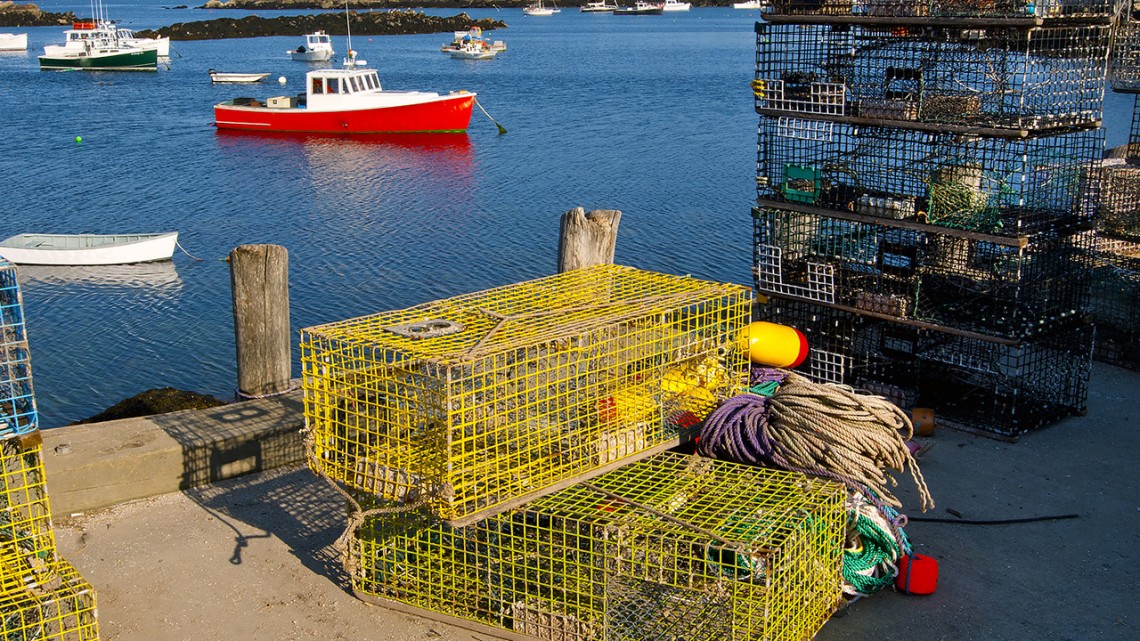
News directly from Cornell's colleges and centers
Maine lobster traps tell cultural story
By Julie Greco
Maine lobster fishers face a dual threat to their industry both from conservationists looking to protect North Atlantic right whales and a global climate crisis that is irrevocably changing Atlantic coastal environments. Emerging lobster trap technology promises to help mitigate both threats, but technological fixes ignore the more complex relationship between the settler colonial fishing industry and long-term ecological change.
In her paper, “Lobsters, Whales and Traps: The Politics of Endangerment in the Gulf of Maine,” Associate Professor Sarah Besky, a cultural anthropologist, draws on public archives, popular media and ethnographic observations of public meetings about North Atlantic right whale regulations to show “how ecological fragility and white working class fragility become yoked together.”
Besky explains that lobster fishers on the coast of Maine are “grounded in … narratives not just about fishing, but about fishing in the ‘right’ way. Fishers’ adherence to these unspoken rules turns the coast – and the ocean – into inheritable property. It makes them into a highly guarded white sovereign space.”
Moving into that space is the North American right whale, an endangered species that swims close to the shoreline. Warming coastal waters have caused the whales to migrate north, bringing them into congested fishing areas like the Gulf of Maine. Lobster traps prove to be particularly dangerous for these whales, as nearly 400,000 vertical ropes create a hazard that can result in immediate death, or prolonged entanglements that can restrict a whale’s ability to swim, eat, breathe, mate or care for calves.
Read the full story on the ILR website.
Julie Greco is a communication specialist in the ILR School.
Media Contact
Get Cornell news delivered right to your inbox.
Subscribe
